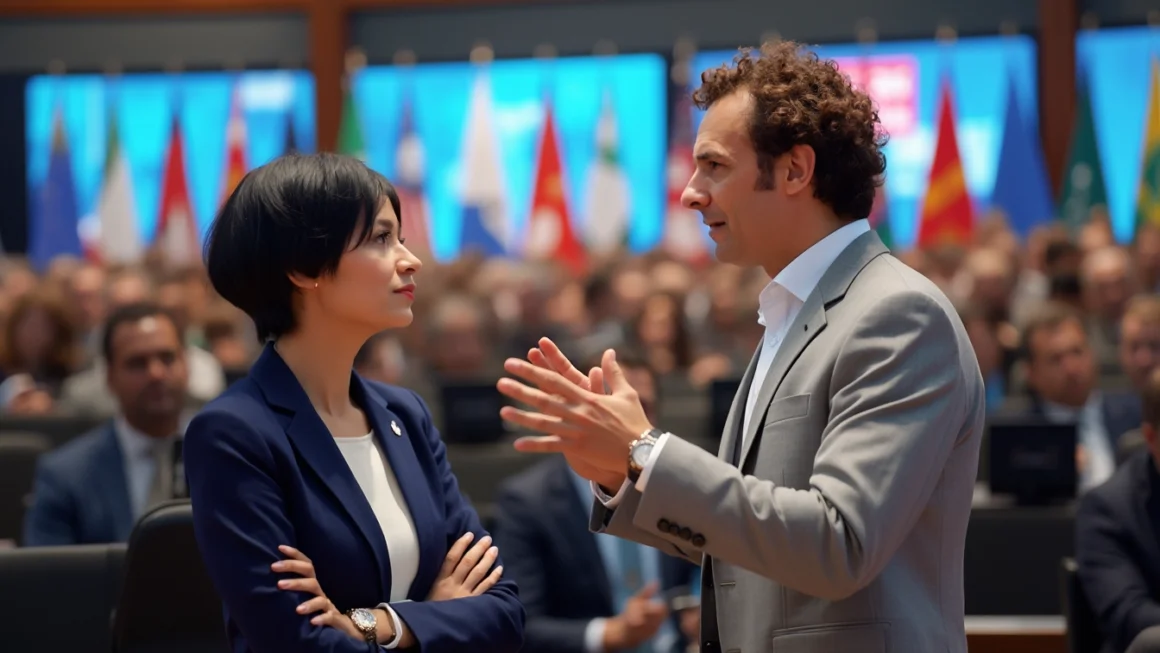Gender Equality Discussions Face Roadblocks at COP29
Table of Contents
As the 29th Conference of the Parties (COP29) to the United Nations Framework Convention on Climate Change (UNFCCC) progresses, negotiations on gender equality have hit a significant impasse. This development underscores the complex interplay between climate action and social equity issues on the global stage.
The Gender Action Plan: A Contentious Issue
The Gender Action Plan, a crucial component of climate negotiations, aims to increase women’s participation and leadership in climate-related decision-making processes. However, discussions have stalled due to disagreements among member nations. Some countries are pushing for more ambitious targets, while others are hesitant to commit to specific quotas or timelines.
This deadlock highlights the ongoing challenges in integrating gender considerations into climate policy. It also reflects the diverse perspectives and priorities of different nations when addressing the intersection of climate change and gender equality.
Implications for Climate Action
The impasse in gender talks could have far-reaching consequences for global climate initiatives. Research has consistently shown that women are disproportionately affected by climate change, particularly in developing countries. Their inclusion in decision-making processes is not just a matter of equality but also of effectiveness in climate adaptation and mitigation strategies.
By failing to reach a consensus on gender issues, the international community risks implementing climate policies that may inadvertently exacerbate existing gender inequalities or fail to harness the full potential of women’s contributions to climate solutions.
COP31 Host Selection: Turkiye vs Australia
In a separate development, attention has turned to the competition between Turkiye and Australia to host COP31. This selection process is more than just a logistical decision; it carries significant implications for the direction and focus of future climate talks.
Turkiye’s Bid
Turkiye’s candidacy for hosting COP31 presents an interesting proposition. As a country straddling Europe and Asia, it could potentially bridge diverse perspectives on climate action. Turkiye’s unique geographical position also makes it particularly vulnerable to climate change impacts, which could lend urgency to the discussions.
However, concerns have been raised about Turkiye’s own climate policies and its commitment to reducing greenhouse gas emissions. Critics argue that hosting such a crucial conference should be reserved for nations demonstrating strong leadership in climate action.
Australia’s Proposal
Australia’s bid to host COP31 comes at a time when the country is trying to reshape its image on the global climate stage. After years of being criticized for its reliance on fossil fuels, particularly coal, Australia has recently made more ambitious commitments to renewable energy and emissions reduction.
Proponents of Australia’s bid argue that hosting COP31 could accelerate the country’s transition to a low-carbon economy and showcase its potential as a renewable energy superpower. However, skeptics point to Australia’s historical reluctance in climate negotiations and its continued support for fossil fuel industries.
The Importance of COP Host Selection
The choice between Turkiye and Australia for COP31 is not just about location. It will set the tone for future climate negotiations and potentially influence global climate policy direction. The host country often has the opportunity to shape the agenda and highlight specific climate issues relevant to its region.
Moreover, hosting a COP can serve as a catalyst for domestic climate action. The international spotlight and pressure can motivate host nations to accelerate their own climate initiatives and set more ambitious targets.
Looking Ahead: Challenges and Opportunities
As COP29 continues, the international community faces critical decisions that will shape the future of global climate action. The impasse in gender talks serves as a reminder of the complex, interconnected nature of climate and social issues. It underscores the need for inclusive, comprehensive approaches to climate policy that consider diverse perspectives and experiences.
The competition between Turkiye and Australia for COP31 hosting rights presents an opportunity to reflect on the role of host nations in advancing global climate goals. Whichever country is chosen will bear the responsibility of guiding crucial climate discussions at a time when urgent action is more necessary than ever.
As negotiations progress, it’s clear that addressing climate change requires not just technological solutions but also careful consideration of social equity, geopolitical dynamics, and inclusive decision-making processes. The outcomes of COP29, including the resolution of gender talks and the selection of the COP31 host, will play a significant role in shaping the global response to one of the most pressing challenges of our time.
For those interested in exploring how technology can support climate action initiatives and streamline environmental projects, automation tools can play a crucial role in enhancing efficiency and collaboration in climate-related efforts.




